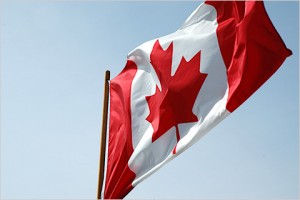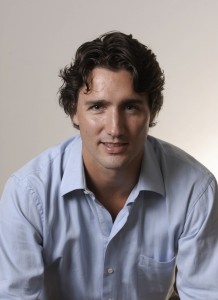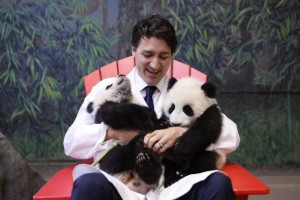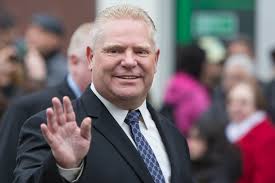 Huawei is a giant Chinese telecom company. It produces fifth-generation telecom equipment (5G), cell phones, and much more. Its 5G equipment is probably the most advanced in the world.
Huawei is a giant Chinese telecom company. It produces fifth-generation telecom equipment (5G), cell phones, and much more. Its 5G equipment is probably the most advanced in the world.
The US has accused it of espionage: Stealing commercial secrets. In the US, it is illegal for Huawei telecom equipment to be used for infrastructure, and the US is trying to convince other countries, especially European ones, to not use their equipment either. The rationale is that such equipment makes Chinese spying easier.
A while back, the US government asked the Canadian government to extradite a Chinese Huawei executive to the US. Her name is Meng Wanzhou, and she is the daughter of Huawei’s CEO.
Importantly, she was charged with fraud related to violating US-Iran sanctions, not espionage against American companies.
In response, China has mostly swung at Canada, arresting a number of Canadians and retrying a Canadian drug smuggler, increasing his penalty to death.
One of the US’s goals has been to separate the US and China: For example, the NAFTA rewrite, the USMCA, forbids any member from forming a trade deal with a “non-market economy” if either other member disagrees. (The US defines China as a “non-market economy.”)
It may or may not have been deliberate, but this request has made Canadian/Chinese relations much worse.
Note that the person being charged is pretty close to Chinese royalty. This is like if Steve Job’s daughter was a senior Apple executive and arrested. Imagine the furor.
But I want to highlight something else: This is about breaking Iran sanctions. (Which China did, though I have no insight into Meng’s involvement.)
The Iran sanctions were certainly legal under US law. They were not, however, in any way, shape or form, just. As with all economic sanctions they disproportionately hurt people not in the ruling class. They hit various medicines and caused a lot of suffering and death. The evidence that Iran had a nuclear weapon program was always dicey, and in any case, that America has the right to deny nuclear weapons to other countries is unclear.
So Meng is being prosecuted for a political crime. She is being prosecuted because her country decided not to obey US laws with respect to another country. US laws which are unjust on their face.
To me, at least, this is illegitimate. China’s counter-strikes are also illegitimate: Canadians should not be used as cats-paws in this, and China’s actual issue is with the United States, not Canada. That said, from a realpolitik point-of-view, I entirely understand China making the point that acting on behalf of the US in its near-cold war with China will have negative consequences.
This row has continued to accelerate. There is a fair bit of danger, in the medium-run, that the world is going to split into two economic blocs, and enter something close to a cold war again.
The US wants China to do what the US wants, which is for them to remain a regional power, not a great power, to not take control of its near abroad (as the US did in the 19th and early 20th century, in much more violent fashion than China has so far), and China, a rising Great Power (and potential superpower) will not be stifled in this way. No rising great power, certainly not the US, ever was or will be.
This road, though we are early on it, leads to war. There are things China does that are illegitimate, but its power will have to be accommodated, just as the US’s was. (Take a look at the map of the Canadian province of British Columbia, notice the Alaska panhandle: It is complete bullshit, and it was obtained because Theodore Roosevelt was willing to go to war to get it, and the British, preoccupied elsewhere, weren’t willing to fight him for it.)
As for Meng, she is clearly a political prisoner and pawn, as are all the Canadians that China has arrested in retaliation.
While it’s unlikely to happen, because Americans think they have the right to apply their law to anyone, anywhere and to kill anyone they want in most countries in the world, without even a trial, sensible politics would be to de-escalate this.
Locking up Meng, which is most likely (US prosecutors generally get their victims) will be a running sore. America is banking on Chinese fear outweighing Chinese anger. Maybe it will, for a time, but the Chinese strategic tradition also includes a hell of a lot of smiling at enemies until you can stomp them flat.
The US ought to think very carefully on that, and whether or not it really wants to go down this road, especially over such an unjust charge.
As for Canada, it is an American subject state, and, as the USMCA proved, when America gets serious, Canada does what it is told. I have explained this to Canadians for a couple decades now, including the need for an actual deterrent (it needn’t be nuclear), but Canadians think the US is Canada’s friend, not overlord.
This mistake, too, will continue to be punished.
The results of the work I do, like this article, are free, but food isn’t, so if you value my work, please DONATE or SUBSCRIBE.
 I like Canada, but it has its flaws. In particular, it’s been a shitty country to indigenous people.
I like Canada, but it has its flaws. In particular, it’s been a shitty country to indigenous people. 


 Huawei is a giant Chinese telecom company. It produces fifth-generation telecom equipment (5G), cell phones, and much more. Its 5G equipment is probably the most advanced in the world.
Huawei is a giant Chinese telecom company. It produces fifth-generation telecom equipment (5G), cell phones, and much more. Its 5G equipment is probably the most advanced in the world. So, Doug Ford, brother of the Toronto’s crack-Mayor Rob Ford, is now Premier of Ontario.
So, Doug Ford, brother of the Toronto’s crack-Mayor Rob Ford, is now Premier of Ontario.